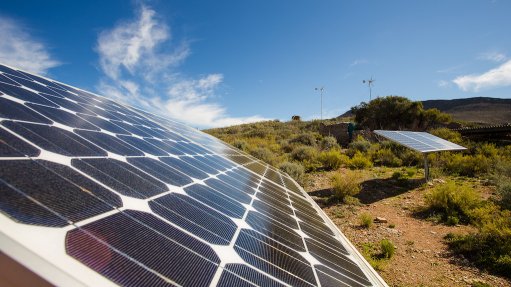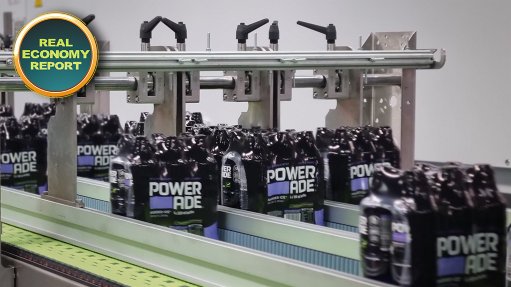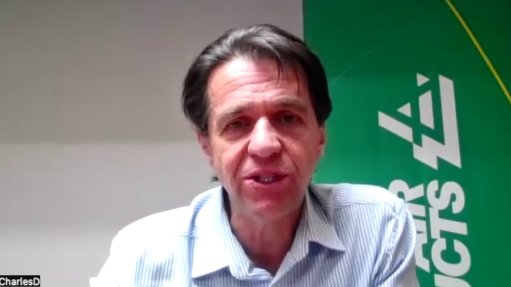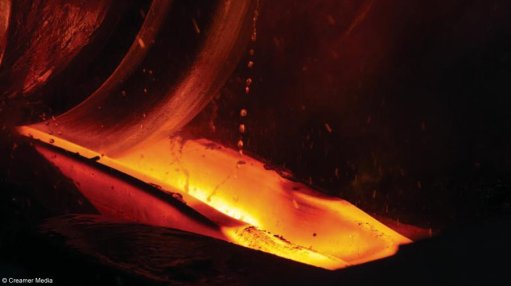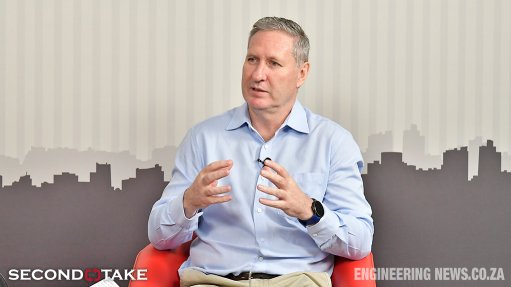Alarming number of climate disclosures not reported


Brundtland Consulting sustainability and climate consultant Pascal Snyman, and partner and environmental, social and governance specialist Lodewijk Nell
A scoping review of publicly available reports of 29 JSE-listed South African mining operations recently conducted by sustainability consultancy Brundtland Consulting, revealed that concerning numbers of mining companies do not report in alignment with leading international climate disclosure frameworks and are not considering climate change in operational risk management.
The 29 JSE-listed South African mining companies were compared with 12 Southern African mining operations in Namibia, Botswana, Zimbabwe and Mozambique.
Brundtland Consulting sustainability and climate consultant Pascal Snyman, and partner and environmental, social and governance specialist Lodewijk Nell – the authors of the study, report that the Southern African mining industry is particularly vulnerable to climate change-related impacts, from physical and transition climate-related risks, to supply chain disruptions and stringent regulatory requirements linked to sustainability.
Physical climate-related risks include increased frequency and severity of droughts, heat waves and extreme precipitation.
Owing to its geographical location and socioeconomic development state, Snyman and Nell state that Southern Africa is significantly vulnerable to the impacts of climate change. “Already classified as arid, future climate projections indicate that the region will become drier and warmer, and simultaneously more prone to irregular and extreme rainfall, increasing the potential for floods.”
They also point out that water availability – a critical component in mining operations – is already limited in Southern Africa, and there is a higher risk of decreased overall rainfall, owing to the projected poleward shifts of frontal climate systems.
Transition risks associated with the move towards a low-carbon economy include policy changes, such as carbon tax and regulatory reporting requirements, as well as technological advancements, such as renewable energy and low-carbon technology.
Additionally, shifts in consumer and investor preferences can significantly impact on the demand and pricing for certain minerals and metals, and how these are mined and processed.
“The mining industry is facing growing pressure from civil society organisations, local communities, and other stakeholders to operate in a socially responsible and sustainable manner,” state Snyman and Nell.
Going forward, because the mining industry forms part of a global supply chain that is vulnerable to climate-related disruptions, Snyman and Nell advise that local miners should work with suppliers and customers to build more resilient and sustainable supply chains.
“This will reduce the risk of disruptions and create new business opportunities,” they say.
Remedy
Owing to the range of risks faced, the need for companies to understand, consider and publicly report climate-related risks and opportunities is increasing; failure to do so means that mines are not fully aware of their climate-related risks and opportunities, and that climate change is not considered in operational management and strategic planning, state Snyman and Nell.
Mining companies that actively consider climate-related risks and opportunities stand to benefit in various ways, they highlight.
Snyman and Nell list numerous benefits to the proactive management of climate-related risks, including an improved ability to navigate physical and transition risks of climate change and the increased potential for long-term value creation.
In addition, the appropriate management of climate-related risks will likely result in improved sustainability and endurance of mining operations, improved business resilience, increased access to capital from investors assured of future climate change resilience and improved financial performance.
Although Brundtland Consulting’s high-level assessment did not cover the entire mining sector in Southern Africa, Snyman and Nell note some interesting observations.
They point out that the data collected points to a higher percentage of South African mining companies (59%) reporting in alignment with Task Force on Climate-Related Financial Disclosures’ recommendations, compared with Southern African mining operations (25%).
Similarly, a higher percentage of South African mining companies (28%) completed CDP climate change responses compared with Southern African mining operations (8%).
Brundtland Consulting also found that South African mining companies have conducted climate change risk assessments at a higher rate (62%) than those in Southern Africa (25%).
Nonetheless, Snyman and Nell say that, while the JSE-listed South African mining companies – guided by the JSE’s sustainability and climate disclosure requirements – are expected to perform better on climate change disclosure, it is imperative that more mining companies measure and manage their climate change-related risks, to proactively mitigate potential impacts and seize opportunities for long-term value creation.
“An urgent shift from a compliance-based approach to a more proactive and strategic approach is crucial for enhancing long-term resilience and creating new business opportunities for mining companies in Southern Africa,” Snyman and Nell conclude.
Comments
Press Office
Announcements
What's On
Subscribe to improve your user experience...
Option 1 (equivalent of R125 a month):
Receive a weekly copy of Creamer Media's Engineering News & Mining Weekly magazine
(print copy for those in South Africa and e-magazine for those outside of South Africa)
Receive daily email newsletters
Access to full search results
Access archive of magazine back copies
Access to Projects in Progress
Access to ONE Research Report of your choice in PDF format
Option 2 (equivalent of R375 a month):
All benefits from Option 1
PLUS
Access to Creamer Media's Research Channel Africa for ALL Research Reports, in PDF format, on various industrial and mining sectors
including Electricity; Water; Energy Transition; Hydrogen; Roads, Rail and Ports; Coal; Gold; Platinum; Battery Metals; etc.
Already a subscriber?
Forgotten your password?
Receive weekly copy of Creamer Media's Engineering News & Mining Weekly magazine (print copy for those in South Africa and e-magazine for those outside of South Africa)
➕
Recieve daily email newsletters
➕
Access to full search results
➕
Access archive of magazine back copies
➕
Access to Projects in Progress
➕
Access to ONE Research Report of your choice in PDF format
RESEARCH CHANNEL AFRICA
R4500 (equivalent of R375 a month)
SUBSCRIBEAll benefits from Option 1
➕
Access to Creamer Media's Research Channel Africa for ALL Research Reports on various industrial and mining sectors, in PDF format, including on:
Electricity
➕
Water
➕
Energy Transition
➕
Hydrogen
➕
Roads, Rail and Ports
➕
Coal
➕
Gold
➕
Platinum
➕
Battery Metals
➕
etc.
Receive all benefits from Option 1 or Option 2 delivered to numerous people at your company
➕
Multiple User names and Passwords for simultaneous log-ins
➕
Intranet integration access to all in your organisation







